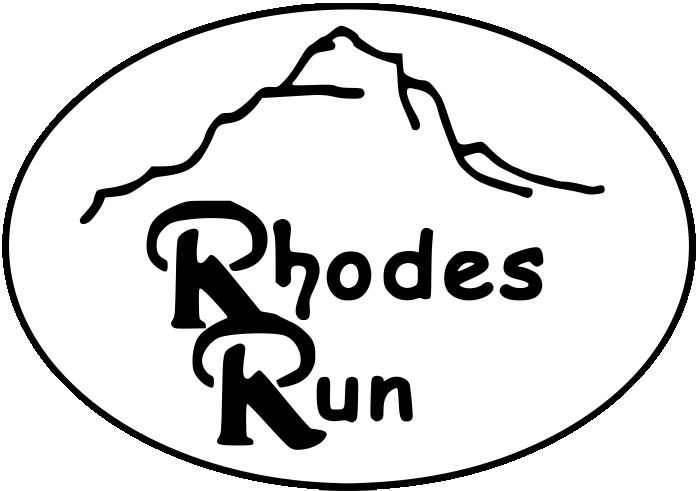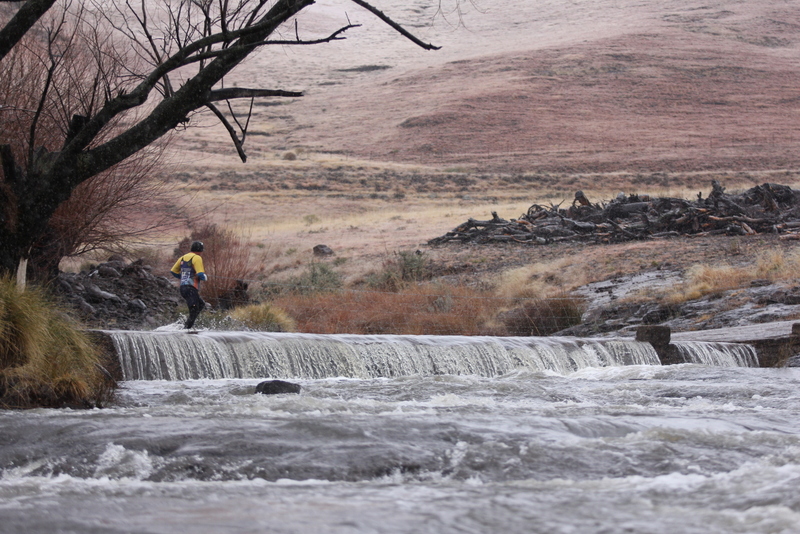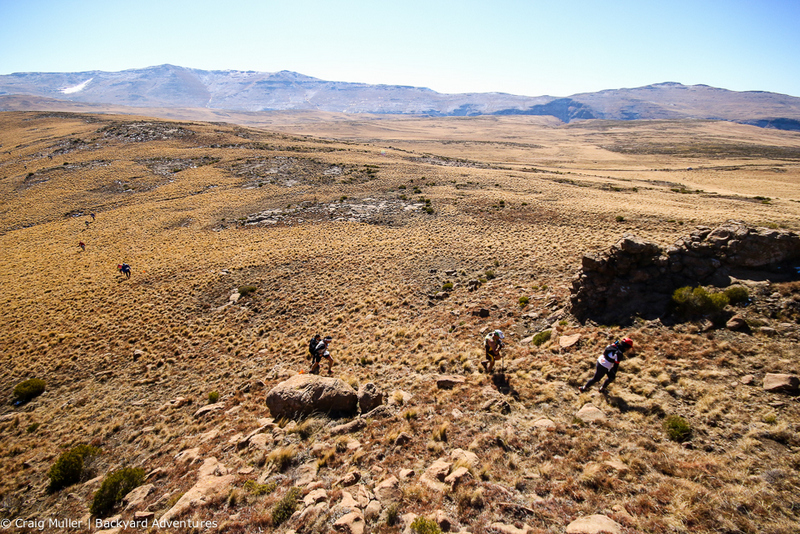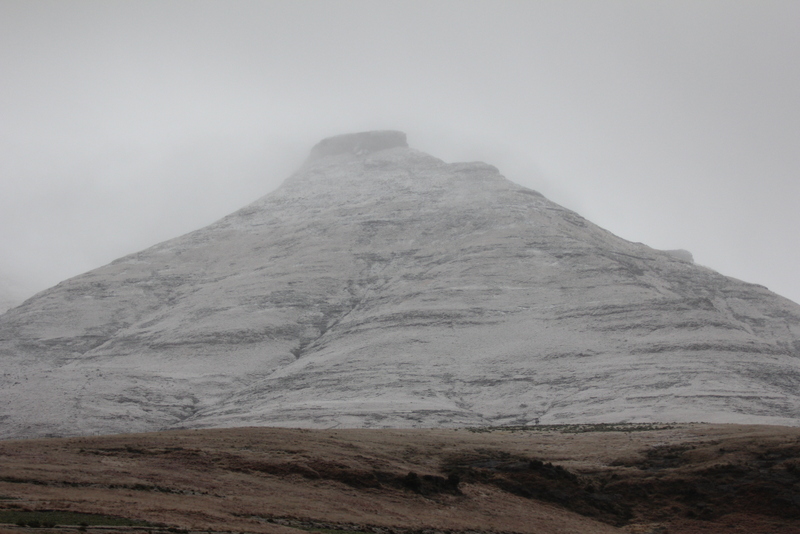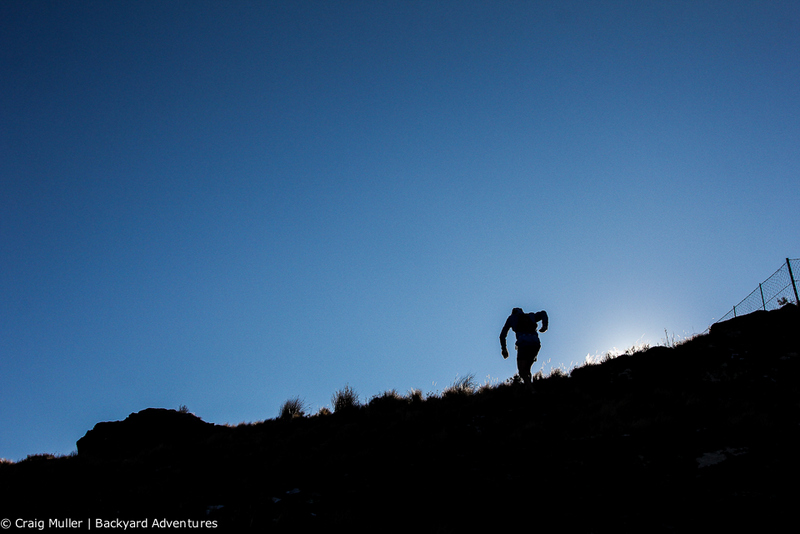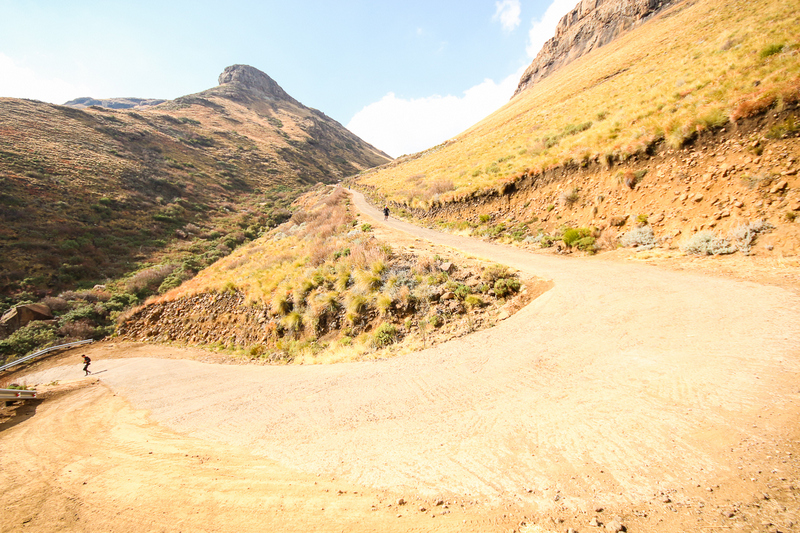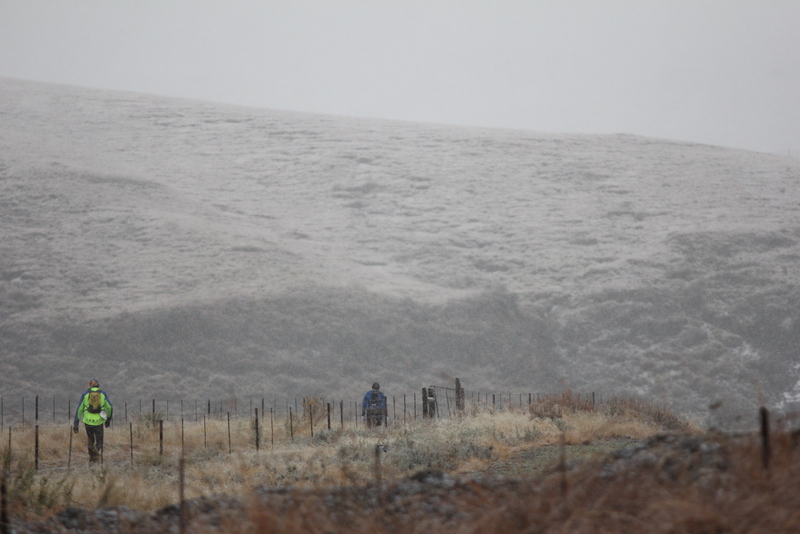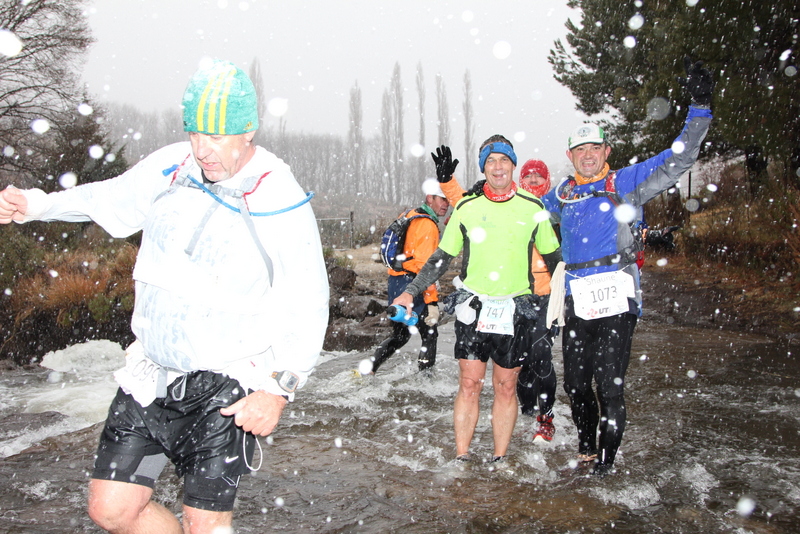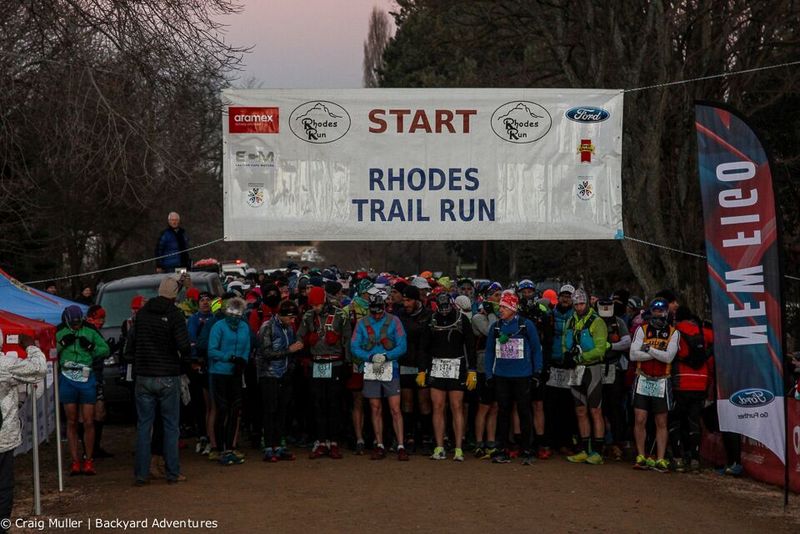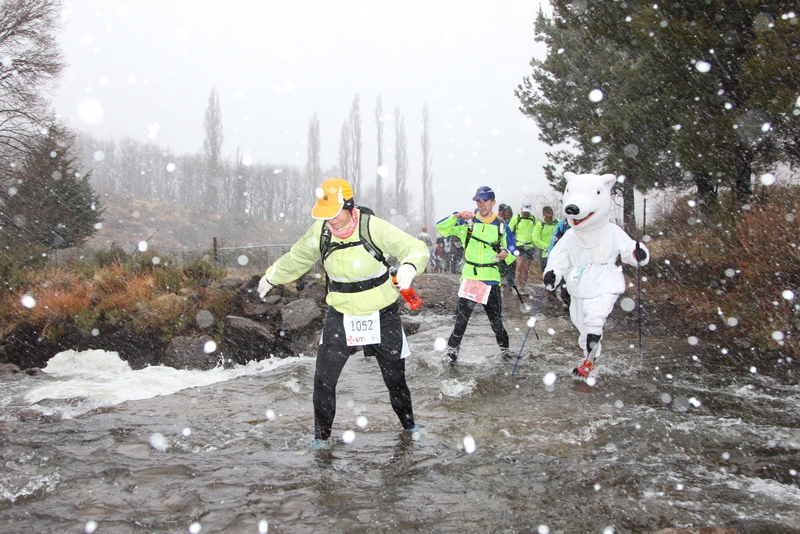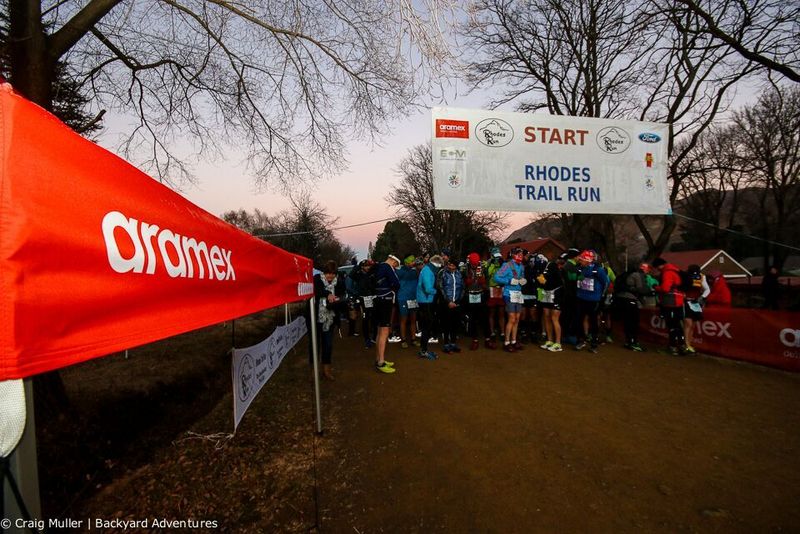Article from the Celtic Harriers newsletter Line Up
by Gavin Durell
Most people will never get to run this race but those who have invariably come away from Rhodes with an indelible impression on their running careers. This year was no exception. My ten years on the waiting list were about to be rewarded. Having done the arduous but incredibly scenic mountain bike race there a few years ago, I was keen to attempt the race and have a rare 'pair' of medals from Rhodes, one from each discipline.
The race may not be everyone's cup of tea, but there is a growing band of more adventurous runners who have helped spread the word. As a result, over the years the race has reached an almost cult-like status among its loyal followers. Not for the faint of heart, this 52km journey over mountainous terrain miles from anywhere, did not disappoint.
This year it was a 'big white one' with the heaviest snowfalls in 70 years, but it also produced several features unlikely to be repeated for a while to come. With the nearby town of Elliot being buried under record snowfalls along with certain areas around Barkly East, access to Rhodes presented the first challenge to participants. Many roads had to be closed because of the conditions, leaving only one road from nearby Barkly East open and navigable to non-4x4 vehicles. Only 272 of the 330 entrants made it to the starting line but this was only part of the drama that unfolded in the days before the race.
As the snow began to fall earlier in the week, it was clear that this was going to be no ordinary year. The first challenge to the organisers came when the Coke truck got stuck in the snow near Elliot and that it would never be able to get anywhere near Rhodes in time for the race. Fortunately the local hotel came to the rescue so that solved the refreshments problem.
It wasn't only the Coke truck that encountered adverse conditions. Quite a few vehicles were halted in their tracks or left the road at various places in the tricky conditions and ever-helpful locals pulled grateful drivers back onto the roads throughout the weekend. A while later, the towns of Elliot and Cala were declared disaster areas. This necessitated all nearby emergency and disaster management services being mustered to cope with the deepening crisis. The race organisers were informed by the local authorities that the race could not go ahead, as the runners safety could not be guaranteed.
The organizers, who now faced possible cancellation of the race, then convened an emergency meeting. As the upper sections of the traditional route were snow-bound, it was decided to cut out the section from Mavis Bank up the mountain to the Lesotho border road and revise the course so that, if required, 4x4 emergency vehicles could still access the route. The distance was cut to 43 kms to accommodate all the revised safety parameters. However, the disappointment of not being able to get 'up top' was more than made up for by a revised course, which was enough to challenge all the participants.
The start, an hour later than normal as a result of the shortened route, gave runners an unexpected lie-in to gather a little extra strength for the task ahead. Race day dawned cold, windless and clear. The town was knee-deep in snow and the surrounding countryside a winter wonderland with breathtaking scenery as far as the eye could see.
Alpine running fashions were out in full force, complemented by plenty of white beanies and gloves which competitors received, along with other useful items, as handouts on checking in. Gear included, lycra tights, pantihose, tops and coverings of various descriptions, all designed to keep the constantly changing elements at bay for the duration of the race.
Feeding stations required a supreme logistical challenge to set up and a committed bunch of volunteers, with about the same level of insanity as the runners, to man them. This is generally a thankless task in any race. But all those spirited souls who stood out there in the cold wind and snow dispensing refreshments and cheer to the runners won my 'service-above-self' award that day. The prize for the best feeding station is as keenly contested as the race itself and the lengths that people went to, topless ladies at one point, probably to cure snow blindness - were amazing. Conditions underfoot were uneven and treacherous in places, varying from muddy and slippery-wet to slippery-soft and hard-frozen.
The wind did get up later and sent temperatures plummeting again during the afternoon. River crossings were bone-chillingly cold on the feet but the atmosphere was festive and the camaraderie of shared lunacy and hardship was what really carried the competitors through to the finish. All except one of the 272 starters completed the race to claim the sought after medal. So few bailing a race like this, is probably something quite unique in itself. Feeding the army of runners and supporters before and after the race amid several power cuts further challenged the local home school who had undertaken this massive task. Not that this appeared to bother them. They just 'made a plan' as country folk are wont to do, and proceedings hardly skipped a beat.
The snow continued to fall on Saturday night as weary competitors and supporters then tackled the next challenge of the weekend; drinking the Rhodes Hotel pub dry. The pub won, but not without accomplishing its primary mission - that of fuelling a few more intrepid souls with the necessary courage to take the birthday suit plunge in the frigid waters of the Bell River just before midnight and join the elite ranks of the Rhodes Polar Bear Club. No medals for this feat however. Just a T-shirt, but all part of the legend, fun and traditions of the event.
It snowed again as we left on Sunday morning, our convoy of cars slowly threading its way through the picturesque countryside covered in its thick white mantle. Less lucky were those stranded up the mountain at Tiffendell. They were completely snowed in and were only airlifted out some days later. A long journey home still lay ahead, but behind us, memories of an amazing weekend that will be remembered for a long time to come.
The waiting list for Rhodes is a long one, but if you are prepared to wait, your patience will be infinitely rewarded when you make this pilgrimage.
For the record, our group consisted of: Dave Whitelaw, Tony Miles who was the first Grand Master home, Maureen Miles (Foresters) who was the first Lady Master and yours truly. If you want to see pictures of the event (wink wink, nudge, nudge), the September edition of Runners World contained a feature article on the Rhodes Marathon.
© Celtic Harriers Newsletter
